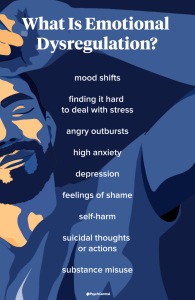How Do You Handle Cases That Involve Emotional Trauma and Sensitivity?
How Do You Handle Cases
There are many different kinds of trauma, from a one-time event such as an accident or assault to ongoing stress from life events or chronic illness. Regardless of the origin, it’s often difficult for individuals to process a traumatic experience on their own. The best way to help your client deal with a traumatic memory is to identify potential triggers. Triggers can be any sensory reminder that evokes the trauma: noise, smell, temperature, sight, or physical sensation (e.g., being trapped in a car after an accident).
A flashback is a brief experience where a client is reliving a traumatic event from an earlier time in his or her life. During the flashback, clients may recall what they were doing, or how they were feeling at the time. Most 9/11 survivors attorney are able to reprocess a traumatic event without displaying symptoms of posttraumatic stress disorder. However, for some, the effects are more profound.

Emotional trauma can be a debilitating experience for the 9/11 survivors attorney, and the effects can take a toll on those around them. Remember that these symptoms are a normal part of the healing process and don’t take them personally. In addition, maintaining a regular routine and staying connected to family and friends can be beneficial. The more you can make your client feel safe and loved, the easier it will be to manage the trauma.
How Do You Handle Cases That Involve Emotional Trauma and Sensitivity?
You should also be provided with resources that will help you through the process, such as a victim-witness coordinator, support group, or other advocacy group that can provide a range of services and assistance for your case. Often, these groups have volunteer attorneys that can provide legal representation at no or low cost for those who may not qualify on a financial basis. The legal process can be intimidating, especially for a survivor who is unfamiliar with the law or the court system. It is your job as a survivor’s attorney to be able to explain the legal process and offer support and guidance through the process.
There is no wrong answer to this question, but it is important to note that some cases are best handled in criminal court while others are better served in a civil suit. Both have their own unique rules, time limits and statutes of limitations. The decision to go to court is a personal one for every survivor. You should consult with a lawyer as soon as possible so that you can understand what the best course of action is for your case.
Attorneys can refer to a list of resources for victims and their families to find legal help or services such as victim advocacy centers, family law lawyers, domestic violence organizations and child welfare agencies. These resources are available in the jurisdictions in which they practice. Lawyers can also attend training and educational sessions, such as those provided by the American Bar Association. These are a great way to stay up-to-date on current legal issues and learn about new programs and services that can assist their clients and reduce their anxiety about the legal process.